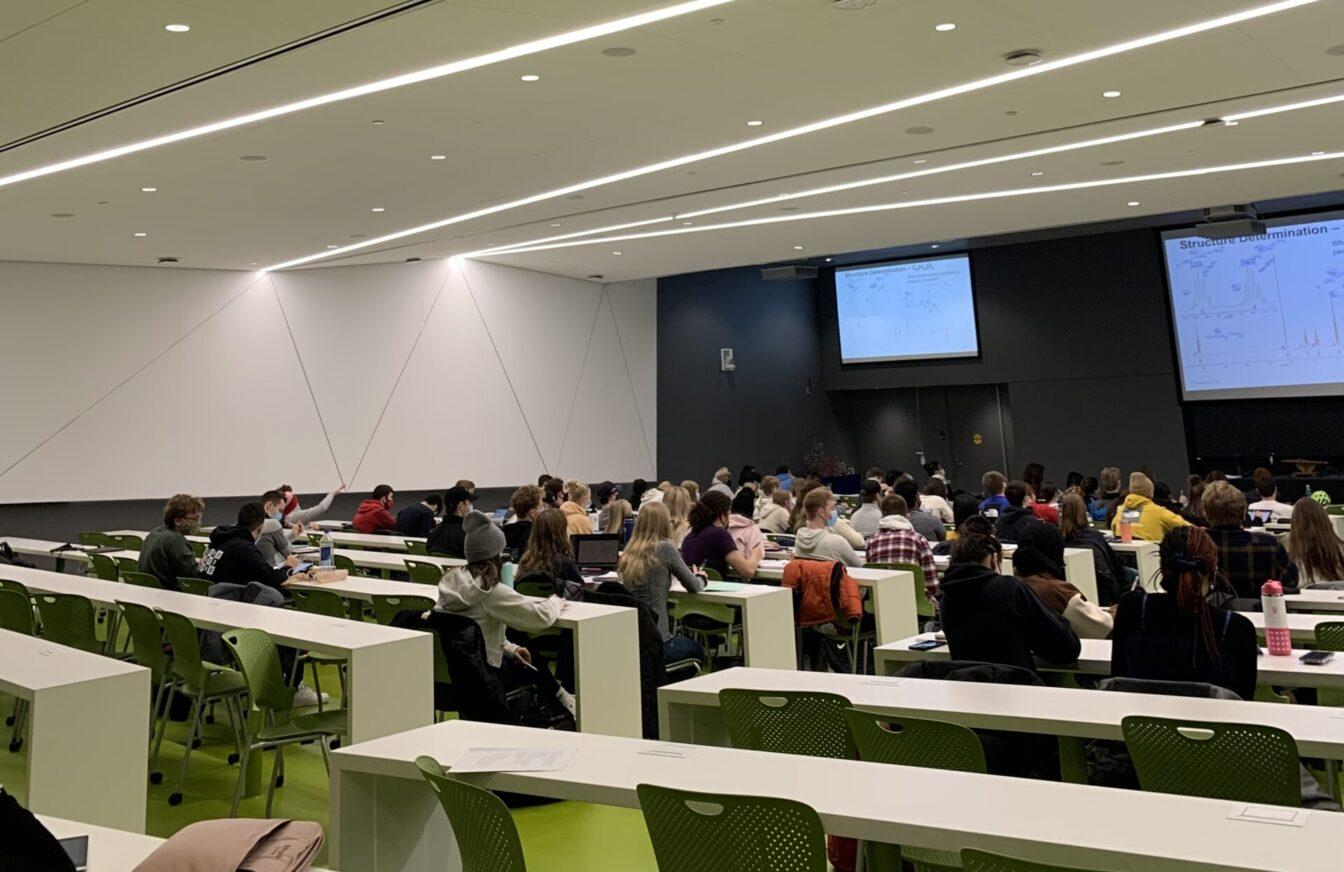In his newly released book, “Why We Teach Science (and Why We Should),” University of Wisconsin professor in the School of Education John Rudolph picks apart the reasoning behind common curriculum goals. Rudolph suggests the focus on memorization and detail-heavy lab work isn’t relevant to students’ future professions and limits the depth of their learning.
“Traditionally, there’s this view that one of the most common reasons people give is to develop the STEM workforce,” Rudolph said. “And when you look at the actual numbers of the general public that end up in those kinds of science-related careers [scientists and engineers], it’s really very few, it’s not more than 7%.”
Rudolph said he advocates for a humanistic curriculum — one that focuses on the history and development of scientific ideas — so students understand science as an intellectual process influenced by historical context.
The goal is to prepare the public to understand what science is, where reliable knowledge comes from and who to trust when it comes to science, Rudolph said.
School of Education professor Diego Román studies education for multilingual students. Román said assessing learning based on standardized testing narrows the focus of learning instead of embracing the spectrum of ways students can interact with the natural world.
Historically, people have had many different ways of approaching human-nature interactions, Román said. Those attitudes are captured in different languages, especially Indigenous languages. Learning about more than one narrative and broadening the definition of knowledge connects students to their education, Román said.
Román’s research explores formative assessments, which educators use to track student understanding in classroom settings as an alternative to summative assessments.
Summative assessments — including final exams that measure learning outcomes at the end of a course — generally force students to process their thinking through essays or multiple-choice questions with little room for alternative routes of expression, Román said.
Formative assessments capture a broader understanding that summative assessments, like standardized tests, generally ignore, Román said.
UW Population Health Sciences professor speaks on misinformation in public health
In formative assessments, teachers ask students if a concept is clear or request they draw something to illustrate what they learned, Román said. The goal is not necessarily to grade students, but rather for the teachers to react to the learning happening in a lesson. From this, they can adjust the curriculum to match the class’ needs, Román said.
“Science is one of the best content areas to do that [express learning creatively],” Román said. “You can draw something, you can use math to explain your thinking about a particular environmental or scientific process.”
Chair of the Department of Life Sciences Communication Dominique Brossard studies the interactions between policy, people and science. Brossard said science education needs revision.
Science researchers have observed partisan polarization and doubt surrounding COVID-19 and climate change. This demonstrates many people are ill-prepared to sort through constantly changing information, Brossard said.
“The American public has always been told ‘trust facts’ [and] ‘science is truth,’” Brossard said. “We’re not preparing the American public to deal with crisis. There’s tons of different disciplines and all of them have different ways of collecting data, different ways of establishing new knowledge.”
Upstream intervention: UW researchers to explore novel suicide prevention, well-being methods
People take many mental shortcuts when making decisions, Brossard said, not just in times of confusion. The formation of attitudes about complex scientific issues is based on previous experiences and opinions rather than the available science.
Leema Berland is the department chair of the School of Education, whose research is centered on student engagement in scientific processes. In agreement with Brossard, Berland said the information students learn in class is not the information they use to make sense of the world.
Many experts in the field conclude that memorization-based curriculum does not actually reflect how people learn or how they use science, Berland said. Teachers must create a space where students can feel capable and engage their thinking by building on their knowledge.
Though standardized testing continues to frustrate students and teachers alike, Berland said there are many classrooms already changing.
“There is a curriculum out there right now that first graders are investigating how dolphins can communicate with each other at a distance when they can’t see,” Berland said. “And that connects to ideas about what sound is and how sound travels.”
UW nuclear medicine employees use radiopharmaceuticals for cancer treatments
In this project, Berland said, the students draw pictures of air models that display how sound travels through water. Once they construct models of this movement, they are used in class discussions about how the dolphins communicate.
The process invites the children to bring their outside knowledge into their learning. Rather than telling students what to believe, Berland said, teachers can create a path for them to develop their own thinking on a subject.
“That sort of learning environment that enables students to envision themselves as capable members of society [is] what helps them dream big,” Berland said.


















